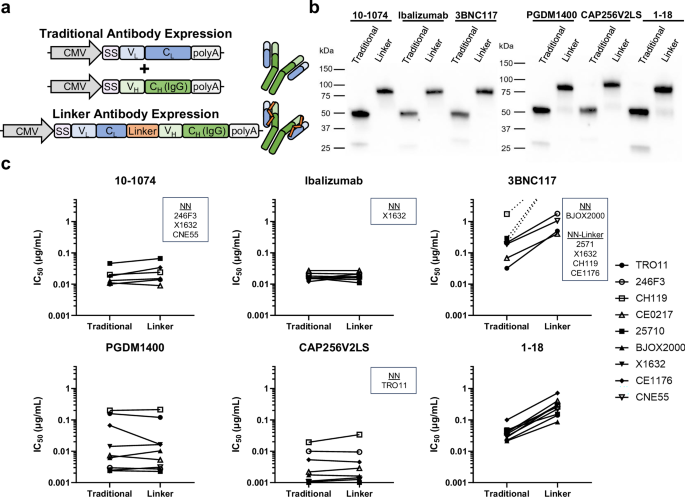Fertility Services Market to Reach USD 94.43 Billion by 2032 with
Fertility Services Market
The fertility services market has witnessed substantial growth over the past few decades, driven by advancements in assisted reproductive technologies (ART), rising awareness about fertility preservation, and increasing demand for fertility treatments. As we look ahead to 2032, the market is projected to expand further due to changing societal norms, an aging global population, and an increasing focus on healthcare.
Get a Free Sample Report - https://www.skyquestt.com/sample-request/fertility-services-market
The fertility services market includes a wide range of treatments and procedures that help individuals or couples overcome infertility. These services include in vitro fertilization (IVF), artificial insemination, egg and sperm donation, cryopreservation, fertility surgeries, and genetic testing for embryos. In recent years, the market has become more diversified, with both male and female fertility treatments available, alongside services focused on preserving fertility, such as egg freezing and sperm banking.
Key Drivers of Market Growth
1. Technological Advancements: Continuous innovation in ART is significantly driving the market's growth. New technologies, such as genetic screening, advanced embryo culture systems, and artificial intelligence (AI)-driven diagnostics, are improving the success rates of fertility treatments. Furthermore, the adoption of robotic surgeries and minimally invasive procedures has reduced the risks associated with fertility treatments.
2. Aging Population: As global life expectancy increases, many women are choosing to delay childbirth for personal or professional reasons. The fertility of women declines with age, leading to a rise in demand for assisted reproductive services. The increased prevalence of age-related infertility is expected to boost the market for ART treatments and services.
3. Rising Awareness and Acceptance: Societal acceptance of fertility treatments is growing, and with it, awareness of infertility issues is on the rise. Public education campaigns, improved access to information, and increasing social acceptance of ART procedures have resulted in a greater willingness to seek treatment. In many countries, infertility is now recognized as a medical condition, which has contributed to increased demand for fertility services.
4. Increase in Fertility Disorders: Fertility disorders such as polycystic PCOS, endometriosis, and male infertility are becoming more prevalent. These conditions, coupled with lifestyle factors like stress, poor diet, and environmental toxins, are contributing to a higher demand for fertility solutions. As these disorders are better understood, targeted treatments are being developed to cater to the specific needs of individuals struggling with infertility.
5. Rising Disposable Incomes and Healthcare Expenditure: Growing disposable income and rising healthcare spending, especially in emerging markets, are contributing to the accessibility of fertility treatments. With increasing financial stability, more individuals are seeking out fertility services, even in regions where ART has traditionally been less accessible.
Make an Inquiry to Address your Specific Business Needs - https://www.skyquestt.com/speak-with-analyst/fertility-services-market
Market Segmentation
The fertility services market can be broadly categorized based on type of service, technology, and geography.
1. By Type of Service:
- In Vitro Fertilization (IVF): IVF remains the most widely used fertility treatment globally. It involves the fertilization of an egg outside the body, followed by implantation in the uterus. The demand for IVF services is high due to the success rate of the procedure.
- Artificial Insemination: This includes intrauterine insemination (IUI) and other artificial methods to deposit sperm into the uterus. It is often a less invasive and lower-cost option compared to IVF.
- Egg & Sperm Donation: As infertility issues related to egg and sperm quality increase, egg and sperm donation services are seeing high demand. This market is further bolstered by advances in genetic screening to ensure the best outcomes.
- Cryopreservation (Egg/Sperm Freezing): Cryopreservation allows individuals to preserve their fertility by freezing eggs, sperm, or embryos for future use. With growing interest in delaying parenthood, cryopreservation services have experienced significant growth.
- Genetic Testing & Screening: Preimplantation genetic testing (PGT) and genetic screening are increasingly used to identify genetic disorders in embryos before implantation, ensuring healthier pregnancies and reducing the risk of miscarriage.
2. By Technology:
- Artificial Intelligence (AI) in Fertility: AI is revolutionizing fertility treatments by improving diagnostic accuracy, predicting outcomes, and personalizing treatment plans for patients. AI is also helping in image analysis during embryo selection and monitoring IVF success rates.
- Robotic Surgery: Robotic-assisted surgeries for conditions such as tubal blockages or endometriosis are providing enhanced precision and reducing recovery times.
Regional Insights
1. North America: North America holds the largest share of the fertility services market, driven by advanced healthcare systems, high awareness, and significant disposable income. The U.S. is a major contributor to this growth, with fertility clinics and ART centers well-established across the country. The legalization of same-sex marriage and increasing acceptance of non-traditional family structures have further expanded the demand for fertility services in the region.
2. Europe: Europe also plays a crucial role in the fertility services market. Countries like the UK, Spain, and Denmark are known for their advanced fertility treatments. Legal frameworks that regulate fertility treatments and offer reimbursement policies in many European countries contribute to a favorable market environment. The rising trend of delayed childbearing among women in Europe is further driving market growth.
3. Asia-Pacific: The Asia-Pacific region is expected to witness the fastest growth due to rising awareness, increasing disposable income, and improving healthcare infrastructure. Countries like China, India, and Japan are investing heavily in fertility clinics and ART technologies. The increase in lifestyle diseases and infertility is also contributing to this growth. However, social and cultural barriers may affect the rate of adoption in certain countries.
4. Latin America & Middle East & Africa: The Latin American and Middle Eastern markets are seeing growth as healthcare standards improve and access to fertility services increases. In many of these regions, fertility tourism is gaining traction, with patients traveling to countries offering affordable and high-quality treatments.
Take Action Now: Secure Your Fertility Services Market Today - https://www.skyquestt.com/buy-now/fertility-services-market
Challenges in the Fertility Services Market
Despite the growth prospects, the fertility services market faces several challenges:
- High Costs of Treatment: Fertility treatments, especially IVF, can be expensive, and not all insurance plans cover these services. This creates barriers to access for a significant portion of the population.
- Regulatory Issues: Fertility services are heavily regulated, and the regulatory framework varies significantly between countries. For example, certain countries have restrictions on egg and sperm donation, which limits access to treatment.
- Emotional and Ethical Considerations: The emotional impact of infertility and the ethical concerns surrounding genetic screening and embryo manipulation continue to influence consumer behavior and market dynamics.
Market Outlook and Growth Projections
The global fertility services market is expected to grow at a compound annual growth rate (CAGR) of around 8.9% from 2025 to 2032. By 2032, the market is anticipated to reach a value of $94.43 billion, driven by the ongoing advancements in ART, increased healthcare investments, and growing societal acceptance of fertility treatments.
As more people turn to fertility services to build families, the market will continue to evolve, bringing forth new opportunities for innovation and service expansion. Fertility clinics and healthcare providers that embrace cutting-edge technologies, personalized care, and cost-effective solutions will be well-positioned to succeed in this fast-growing market.
Top Players in Fertility Services Market
Merck KGaA (Germany)
Vitrolife AB (Sweden)
Monash IVF Group (Australia)
Genea Limited (Australia)
Progyny, Inc. (United States)
Ferring Pharmaceuticals (Switzerland)
CooperSurgical, Inc. (United States)
Cook Medical Inc. (United States)
The Cooper Companies, Inc. (United States)
Virtus Health (Australia)
Cryos International (Denmark)
Carolinas Fertility Institute (United States)
Apollo Fertility (India)
Bloom IVF Centre (India)
Bangkok IVF Center (Thailand)
Medicover Fertility (Sweden)
Read Fertility Services Market Report Today - https://www.skyquestt.com/report/fertility-services-market
The fertility services market is poised for significant growth through 2032, fueled by technological advancements, an aging population, increasing awareness, and shifting societal attitudes toward infertility. While challenges such as cost and regulatory hurdles remain, the overall outlook is positive, with many opportunities emerging for providers and patients alike. As the industry evolves, fertility services will become more accessible, efficient, and integrated into the broader healthcare landscape, helping millions of individuals achieve their dream of parenthood.
Browse More Research -
Compressor Market - https://www.openpr.com/news/3948291/compressor-market-to-exhibit-a-remarkable-cagr-of-5-0-by-2032
Prefilled Syringes Market - https://pando.life/article/965527
Contact Us:
SkyQuest Technology
1 Apache Way, Westford,
Massachusetts 01886
USA (+1) 351-333-4748
Email: [email protected]
Visit Our Website: https://www.skyquestt.com/
About Us:
SkyQuest is an IP focused Research and Investment Bank and Accelerator of Technology and assets. We provide access to technologies, markets and finance across sectors viz. Life Sciences, CleanTech, AgriTech, NanoTech and Information & Communication Technology.
We work closely with innovators, inventors, innovation seekers, entrepreneurs, companies and investors alike in leveraging external sources of R&D. Moreover, we help them in optimizing the economic potential of their intellectual assets. Our experiences with innovation management and commercialization have expanded our reach across North America, Europe, ASEAN and Asia Pacific.
This release was published on openPR.








